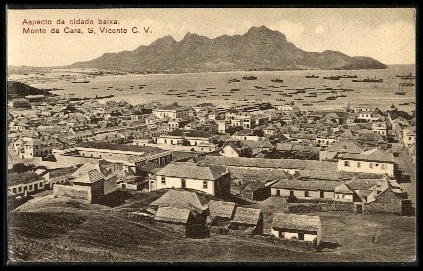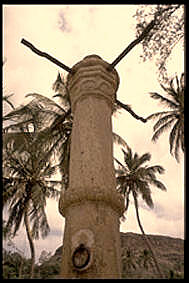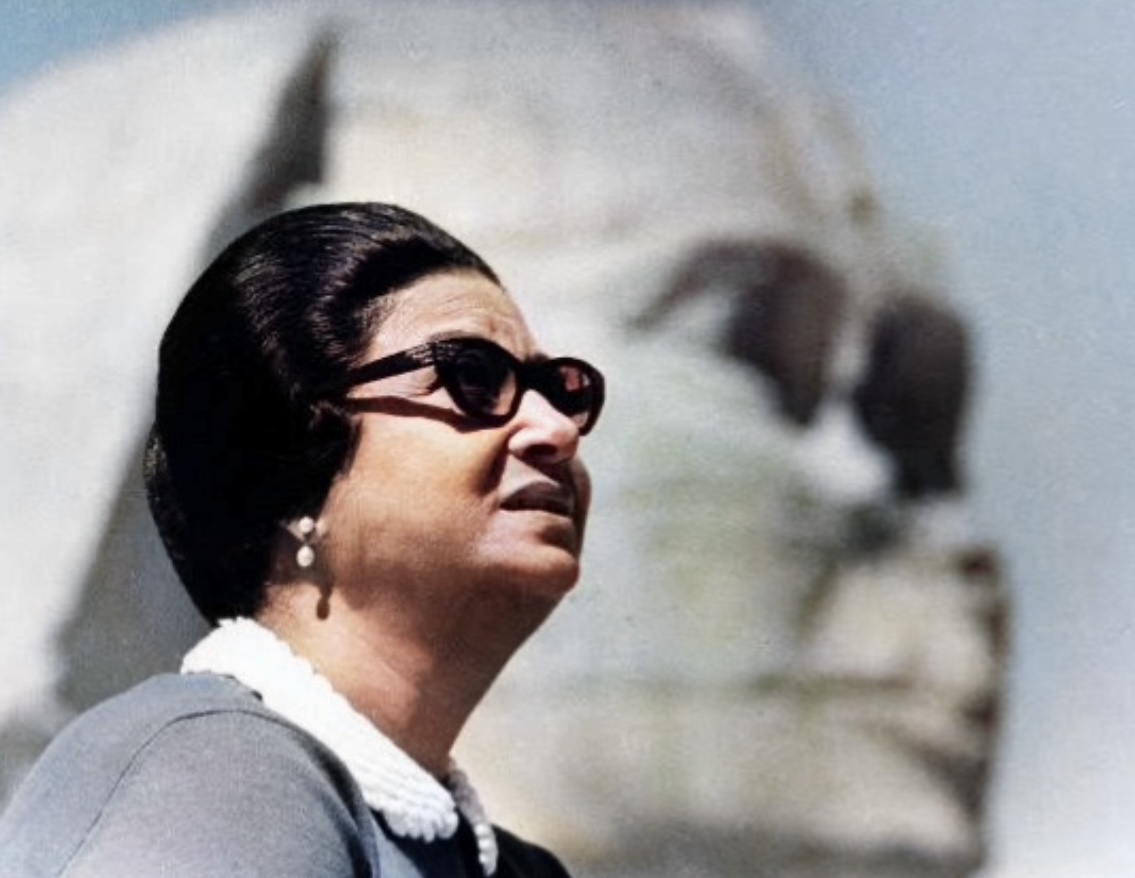|
Sérgio Ferreira (writer)
Sérgio Manuel Napoleão Ferreira (1946– 2006) was a Portuguese–Cape Verdean writer and filmmaker. Biography He was the son of the Portuguese writer Manuel Ferreira and Cape Verdean writer Orlanda Amarílis. He moved to Pangim in Goa in what was Portuguese India during his childhood and later in Africa. He did not want to participate in the colonial wars in Africa, he lived in exile in London for six years, where he worked in film at the London Film School for cinema and television, he also studied at the Contemporary Film Makers Studio. He also studied in cinematography in Lisbon at Escola Superior de Teatro and Cinema (Theatre and Film High School); he commonly studied with other actors in Lisbon at the National Conservatory. He later became a film producer, took part in filming some films on personalities of Portuguese culture, the feature films for RTP, mainly on the life on Fernando Namora, Leal da Câmara, Pomar, Armando Jorge, Jorge Peixinho, António Casi ... [...More Info...] [...Related Items...] OR: [Wikipedia] [Google] [Baidu] |
Mindelo
Mindelo is a port cityCabo Verde, Statistical Yearbook 2015 Instituto Nacional de Estatística (Cape Verde), Instituto Nacional de Estatística, p. 32-33 in the northern part of the island of São Vicente, Cape Verde, São Vicente in Cape Verde. Mindelo is also the seat of the parish of Nossa Senhora da Luz, and the municipality of São Vicente, Cape Verde, São Vicente. The city is home to 93% of the entire island's population and is Cape Verde's second most populous city and largest city in Barlavento Islands. Mindelo is also considered the cultural capital of Cape Verde, known for its colourful and animated carnival celebrations, with roots in Culture of Portugal, Portuguese traditions later influenced by the Brazilian culture. History [...More Info...] [...Related Items...] OR: [Wikipedia] [Google] [Baidu] |
Jorge Peixinho
Jorge Manuel Marques Peixinho Rosado (born 20 January 1940 — 30 June 1995) was a Portuguese composer, pianist and conductor. Life and career Born in Montijo, Portugal, Peixinho studied composition and piano at the Conservatory of Lisbon from 1951 through 1958. At that institution he was a pupil of Artur Santos and Jorge Croner de Vasconcelos. He then pursued graduate studies in music composition at the Accademia Nazionale di Santa Cecilia in Rome where he was mentored in composition by Boris Porena and Goffredo Petrassi; graduating in 1961. In 1960 he worked with Luigi Nono in Venice, and with Pierre Boulez and Karlheinz Stockhausen at the City of Basel Music Academy. From 1960 through 1970 he was a participant in the Darmstädter Ferienkurse, as both student and lecturer. He began teaching courses in contemporary music in 1962 at the Lisbon Conservatory, and at other institutions in Portugal and South America. In 1970, he created the Lisbon Contemporary Music Group with Cl ... [...More Info...] [...Related Items...] OR: [Wikipedia] [Google] [Baidu] |
People From Mindelo
The term "the people" refers to the public or common mass of people of a polity. As such it is a concept of human rights law, international law as well as constitutional law, particularly used for claims of popular sovereignty. In contrast, a people is any plurality of persons considered as a whole. Used in politics and law, the term "a people" refers to the collective or community of an ethnic group or nation. Concepts Legal Chapter One, Article One of the Charter of the United Nations states that "peoples" have the right to self-determination. Though the mere status as peoples and the right to self-determination, as for example in the case of Indigenous peoples (''peoples'', as in all groups of indigenous people, not merely all indigenous persons as in ''indigenous people''), does not automatically provide for independent sovereignty and therefore secession. Indeed, judge Ivor Jennings identified the inherent problems in the right of "peoples" to self-determination, as i ... [...More Info...] [...Related Items...] OR: [Wikipedia] [Google] [Baidu] |
Cape Verdean Male Writers
A cape is a clothing accessory or a sleeveless outer garment of any length that hangs loosely and connects either at the neck or shoulders. They usually cover the back, shoulders, and arms. They come in a variety of styles and have been used throughout history for many different reasons. Semantic distinction In fashion, the word "cape" usually refers to a shorter garment and "cloak" to a full-length version of the different types of garment, though the two terms are sometimes used synonymously for full-length coverings. A shoulder cape is thus sometimes called a "capelet". The fashion cape does not cover the front to any appreciable degree. In raingear, a cape is usually a long and roomy protective garment worn to keep one dry in the rain. History The first known usage of capes is unknown, but some early references we know of are from Ancient Roman military uniforms. Later on, capes were common in medieval Europe, especially when combined with a hood in the chaperon. They ... [...More Info...] [...Related Items...] OR: [Wikipedia] [Google] [Baidu] |
Portuguese Male Writers
Portuguese may refer to: * anything of, from, or related to the country and nation of Portugal ** Portuguese cuisine, traditional foods ** Portuguese language, a Romance language *** Portuguese dialects, variants of the Portuguese language ** Portuguese man o' war, a dangerous marine animal ** Portuguese people, an ethnic group See also * * '' Sonnets from the Portuguese'' * "A Portuguesa", the national anthem of Portugal * Lusofonia * Lusitania Lusitania (; ) was an ancient Iberian Roman province encompassing most of modern-day Portugal (south of the Douro River) and a large portion of western Spain (the present Extremadura and Province of Salamanca). Romans named the region after th ... * {{disambiguation Language and nationality disambiguation pages ... [...More Info...] [...Related Items...] OR: [Wikipedia] [Google] [Baidu] |
2006 Deaths
This is a list of lists of deaths of notable people, organized by year. New deaths articles are added to their respective month (e.g., Deaths in ) and then linked below. 2025 2024 2023 2022 2021 2020 2019 2018 2017 2016 2015 2014 2013 2012 2011 2010 2009 2008 2007 2006 2005 2004 2003 2002 2001 2000 1999 1998 1997 1996 1995 1994 1993 1992 1991 1990 1989 1988 1987 1986 Earlier years ''Deaths in years earlier than this can usually be found in the main articles of the years.'' See also * Lists of deaths by day * Deaths by year (category) {{DEFAULTSORT:deaths by year ... [...More Info...] [...Related Items...] OR: [Wikipedia] [Google] [Baidu] |
1946 Births
1946 (Roman numerals, MCMXLVI) was a common year starting on Tuesday of the Gregorian calendar, the 1946th year of the Common Era (CE) and ''Anno Domini'' (AD) designations, the 946th year of the 2nd millennium, the 46th year of the 20th century, and the 7th year of the 1940s decade. Events January * January 6 – The 1946 North Vietnamese parliamentary election, first general election ever in Vietnam is held. * January 7 – The Allies of World War II recognize the Austrian republic with its 1937 borders, and divide the country into four Allied-occupied Austria, occupation zones. * January 10 ** The first meeting of the United Nations is held, at Methodist Central Hall Westminster in London. ** ''Project Diana'' bounces radar waves off the Moon, measuring the exact distance between the Earth and the Moon, and proves that communication is possible between Earth and outer space, effectively opening the Space Age. * January 11 – Enver Hoxha declares the People's Republic ... [...More Info...] [...Related Items...] OR: [Wikipedia] [Google] [Baidu] |
Santiago, Cape Verde
Santiago (Portuguese language, Portuguese for “James, son of Zebedee, Saint James”) is the largest island of Cape Verde, its most important agricultural centre and home to half the nation's population. Part of the Sotavento Islands, it lies between the islands of Maio, Cape Verde, Maio ( to the east) and Fogo, Cape Verde, Fogo ( to the west). It was the first of the islands to be settled: the town of Ribeira Grande (now Cidade Velha and a UNESCO World Heritage Site) was founded in 1462. Santiago is home to the nation's capital city of Praia. History The eastern side of the nearby island of Fogo, Cape Verde, Fogo collapsed into the ocean 73,000 years ago, creating a tsunami high which struck Santiago. In 1460, António de Noli became the first to visit the island. Da Noli settled at ''Ribeira Grande'' (now Cidade Velha) with his family members and Portuguese from Algarve and Alentejo in 1462. [...More Info...] [...Related Items...] OR: [Wikipedia] [Google] [Baidu] |
Music Of Africa
The continent of Africa is vast and its music is diverse, with different Regions of Africa, regions and List of African countries, nations having many distinct musical traditions. African music includes the genres like makwaya, highlife, Mbube (genre), mbube, township music, Jùjú music, jùjú, Fuji music, fuji, jaiva, afrobeat, Afro fusion, afrofusion, mbalax, Congolese rumba, soukous, ndombolo, makossa, kizomba, taarab and others. African music also uses a large variety of instruments from all across the continent. The music and dance of the African diaspora, formed to varying degrees on African musical traditions, include music of the United States, American music like Dixieland jazz, blues, jazz, and many Caribbean music, Caribbean genres, such as calypso music, calypso (see kaiso) and soca music, soca. Latin American music genres such as cumbia, salsa music, son cubano, Cuban rumba, rumba, conga (music), conga, Bomba (Puerto Rico), bomba, samba and Zouk (musical movemen ... [...More Info...] [...Related Items...] OR: [Wikipedia] [Google] [Baidu] |
José Cardoso Pires
José Cardoso (2October 192526October 1998) was a Portuguese people, Portuguese author of short stories, novels, plays, and political satire. Life and career Early life Pires was born in the Portuguese village of São João do Peso, which is within the district of Castelo Branco District, Castelo Branco near the border of Spain. His father was in the merchant navy and his mother was a homemaker. Pires studied mathematics at the University of Lisbon, where he published his first short story. He left university to join the Portuguese Navy, from which he was later discharged for disciplinary issues. His writing was greatly influenced by the city of Lisbon, the streets of which are described in great detail in his novels and short stories. Some of his paternal family members immigrated to the United States. Pires connected to American writing styles at a time when Portugal looked to France (and somewhat to north-eastern Brazilian Regionalism (art), regionalism) for its narrative ... [...More Info...] [...Related Items...] OR: [Wikipedia] [Google] [Baidu] |
António Casimiro
Antonio is a masculine given name of Etruscan origin deriving from the root name Antonius. It is a common name among Romance language–speaking populations as well as the Balkans and Lusophone Africa. It has been among the top 400 most popular male baby names in the United States since the late 19th century and has been among the top 200 since the mid 20th century. In the English language, it is translated as Anthony, and has some female derivatives: Antonia, Antónia, Antonieta, Antonietta, and Antonella'. It also has some male derivatives, such as Anthonio, Antón, Antò, Antonis, Antoñito, Antonino, Antonello, Tonio, Tono, Toño, Toñín, Tonino, Nantonio, Ninni, Totò, Tó, Tonini, Tony, Toni, Toninho, Toñito, and Tõnis. The Portuguese equivalent is António (Portuguese orthography) or Antônio (Brazilian Portuguese). In old Portuguese the form Antão was also used, not just to differentiate between older and younger but also between more and less important. In Gali ... [...More Info...] [...Related Items...] OR: [Wikipedia] [Google] [Baidu] |
Armando Jorge
Armando may refer to: * Armando (given name) * Armando (artist) (1929–2018), the name used by Dutch artist Herman Dirk van Dodeweerd * Armando (producer) Armando Gallop (sometimes written as Armando Gallup) (February 12, 1970 – December 17, 1996), who released material under his first name only, was an American house-music producer and DJ who was an early contributor to the development of acid ... (1970–1996), Chicago house producer * ''Armando'' (album), studio album by rapper Pitbull * Armando (''Planet of the Apes''), a fictional character {{disambiguation, hndis ... [...More Info...] [...Related Items...] OR: [Wikipedia] [Google] [Baidu] |



